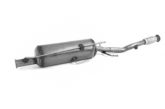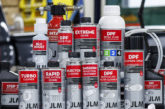The Motor Ombudsman, the automotive dispute resolution provider, explores three of the most common causes of disagreements between consumers and businesses in the service and repair sector.
Lengthy and inconclusive diagnostics
Issues can arise at any stage of the service and repair process, even at the very beginning, such as the diagnosis of the cause of a mechanical problem.
Customers often expect this to be a fairly straightforward procedure – i.e. the vehicle will be connected to a machine which will pinpoint the error, and the ensuing repair will eliminate the defect once and for all. However, in many cases, the reality is that it is not such a seamless process, and the art of diagnostics can become a process of elimination when trying to find the root cause of the issue. Sometimes, there can be instances when a fault is diagnosed and repaired, only for another to occur, which can lead to customer frustration, and sometimes a dispute with the garage where the customer blames them for the problem.
This can be compounded by the fact that technicians and service advisors may not be clear with customers that they might need to authorise more time for diagnosis beyond the initial charge. This, however, can be avoided by ensuring that customers are made aware that the fault may not be found straightaway, and more time might be needed.
Failing to record advice provided to customers
On some occasions, garages may need to give customers specific advice after a diagnosis or repair in order to prevent further problems – for example, having the oil and filter changed 500 miles after an engine repair. However, when this advice has not been clearly noted on the invoice by the garage, or the customer has not signed something to show they were made aware of the advice, it is easy for disputes to arise. If there is no evidence to show that the garage has fulfilled its duty in ensuring that the customer is aware of any advice or warnings, the garage could be held liable for any damage caused.
Damage to a customer’s car whilst on garage premises
The Motor Ombudsman has seen many disagreements relating to damage that has been caused to a customer’s car whilst it’s been on a garage’s premises. This can be in the form of scratches, dents or scrapes.
Where the condition of the vehicle has been assessed on arrival by the garage, this makes it straightforward to determine whether any of the blemishes on the bodywork are pre-existing or have been caused by the repairer themselves. However, the situation is far more complicated in cases where no initial assessment has been undertaken by an expert eye.
Even if there has been a damage check, it is only effective if it has actually been adequately incorporated into a garage’s processes so as to provide clear and indisputable evidence of the state of the vehicle prior to any work being carried out.











